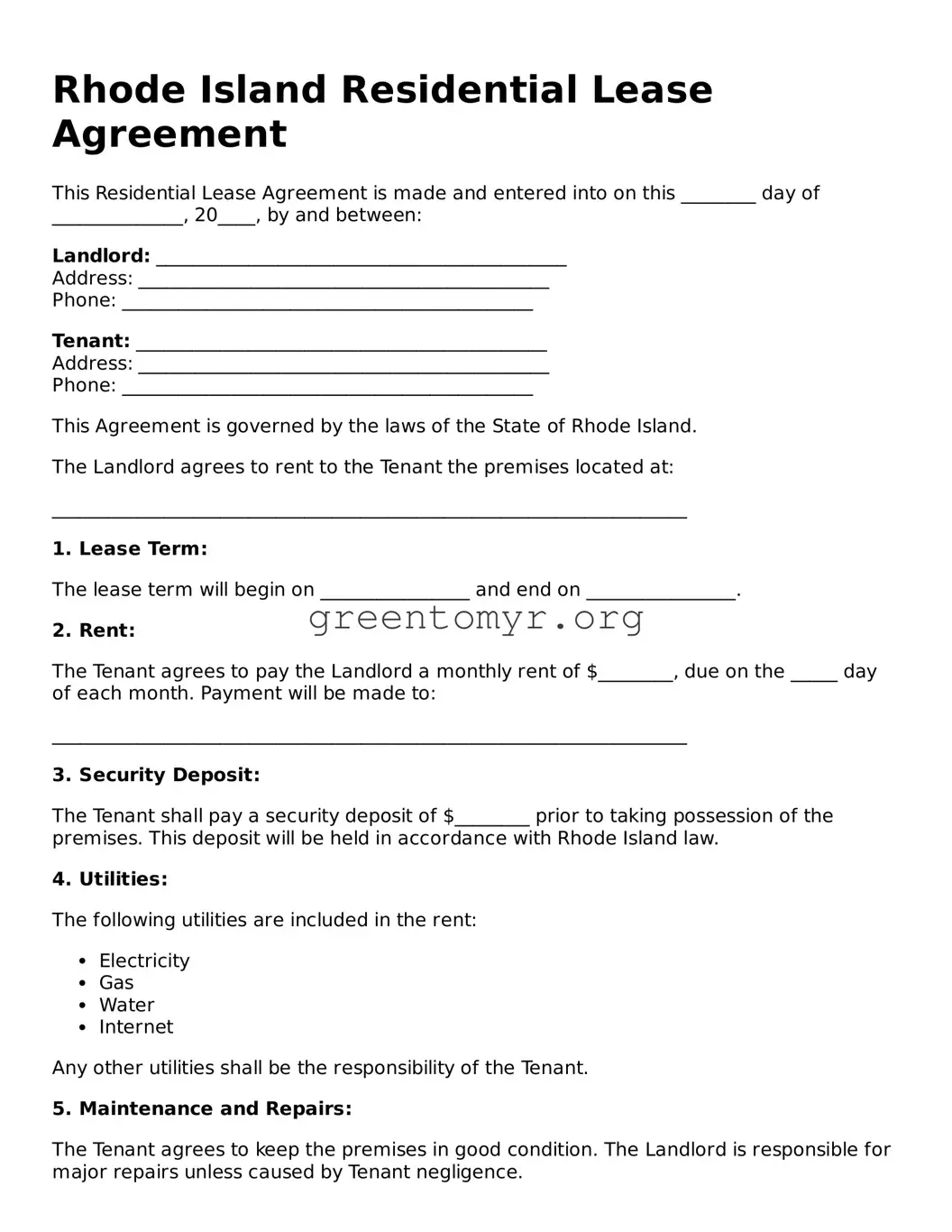Rhode Island Residential Lease Agreement
This Residential Lease Agreement is made and entered into on this ________ day of ______________, 20____, by and between:
Landlord: ____________________________________________
Address: ____________________________________________
Phone: ____________________________________________
Tenant: ____________________________________________
Address: ____________________________________________
Phone: ____________________________________________
This Agreement is governed by the laws of the State of Rhode Island.
The Landlord agrees to rent to the Tenant the premises located at:
____________________________________________________________________
1. Lease Term:
The lease term will begin on ________________ and end on ________________.
2. Rent:
The Tenant agrees to pay the Landlord a monthly rent of $________, due on the _____ day of each month. Payment will be made to:
____________________________________________________________________
3. Security Deposit:
The Tenant shall pay a security deposit of $________ prior to taking possession of the premises. This deposit will be held in accordance with Rhode Island law.
4. Utilities:
The following utilities are included in the rent:
- Electricity
- Gas
- Water
- Internet
Any other utilities shall be the responsibility of the Tenant.
5. Maintenance and Repairs:
The Tenant agrees to keep the premises in good condition. The Landlord is responsible for major repairs unless caused by Tenant negligence.
6. Pets:
The Tenant ____ may ____ may not keep pets on the premises. (Check one)
7. Termination:
Either party may terminate this Agreement by providing written notice at least _____ days in advance.
8. Additional Terms:
____________________________________________________________________
____________________________________________________________________
In witness whereof, the parties have executed this Agreement on the date first written above.
Landlord Signature: _______________________________ Date: ____________
Tenant Signature: _______________________________ Date: ____________
